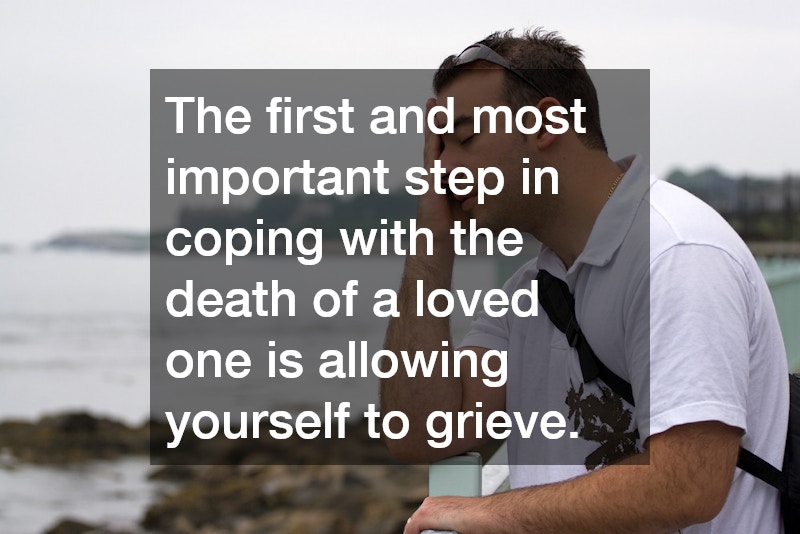Losing a loved one is one of the most difficult experiences a person can face. Grief can be overwhelming, and the pain of loss can feel unbearable at times. While everyone grieves differently, there are ways to navigate through the pain and find comfort in the process. Whether you are planning funeral arrangements in South Carolina or simply trying to come to terms with your emotions, understanding how to cope with the death of a loved one is essential to healing.
In this blog, we’ll explore strategies to help you cope with grief and manage the emotional challenges that come with the loss of a loved one.
1. Allow Yourself to Grieve
The first and most important step in coping with the death of a loved one is allowing yourself to grieve. Grief is a natural response to loss, and it’s important to recognize that there is no “right” way to grieve. Everyone processes loss differently, and the intensity and duration of grief can vary from person to person.
Give yourself permission to feel your emotions, whether it’s sadness, anger, guilt, or even relief. Suppressing these feelings or avoiding them can prolong the grieving process. It’s okay to cry, to feel numb, or to experience waves of grief at unexpected moments. Let yourself go through these emotions without judgment or pressure to “move on.”
2. Seek Support From Friends and Family
Grieving can often feel like an isolating experience, but it’s important to reach out to friends and family for support. Surrounding yourself with loved ones can provide comfort and help you feel less alone during this difficult time. Lean on those who care about you and don’t be afraid to express your feelings or share memories of the person you lost.
Whether you’re planning funeral arrangements in South Carolina or simply needing someone to talk to, having a support system in place is crucial. If you’re struggling to find the right words, know that sometimes simply being around people who care can help ease the burden of grief. Let them know what you need, whether it’s a listening ear, a helping hand, or just some company.
3. Take Care of Practical Matters
After losing a loved one, there are often practical matters that need attention, such as planning the funeral, managing finances, and handling the deceased’s personal affairs. This can feel overwhelming, especially while you’re grieving, but addressing these tasks can also provide a sense of closure.
If you’re in the process of making funeral arrangements in South Carolina, it can be helpful to reach out to a funeral home or service provider who can guide you through the logistics. Many funeral homes offer support in organizing the service, obtaining death certificates, and coordinating with family members. By allowing professionals to help with the details, you can focus on your emotional well-being.
4. Honor the Memory of Your Loved One
One way to cope with loss is by finding meaningful ways to honor the memory of your loved one. This could be through traditional rituals such as a funeral, memorial service, or celebration of life, or through personal gestures like planting a tree, creating a photo album, or organizing a charity event in their name.
When planning funeral arrangements in South Carolina, you might consider incorporating elements that reflect your loved one’s personality and values. Personalizing the service can bring comfort to you and other mourners, providing a sense of connection to the person who passed away. Additionally, finding a way to honor their memory in everyday life can help keep their presence alive in your heart.
5. Practice Self-Care
Grief can take a toll on both your physical and emotional health, making self-care more important than ever. While it’s easy to neglect your well-being during such a difficult time, taking care of yourself will ultimately help you cope with the loss.
Make sure to get enough rest, eat nourishing meals, and engage in activities that bring you comfort or distraction, such as walking, journaling, or spending time in nature. It’s also important to give yourself breaks from the intensity of grief by focusing on self-care, even if it’s something as simple as taking a relaxing bath or reading a book.
6. Consider Professional Support
If you find that your grief is overwhelming and interfering with your daily life, it may be helpful to seek professional support. Therapists, grief counselors, or support groups can provide a safe space to express your emotions and work through your grief. A professional can help you understand your feelings and offer coping strategies that are tailored to your unique experience.
Many people benefit from talking with others who have experienced similar losses. Grief support groups allow individuals to share their experiences, listen to others, and find comfort in knowing they are not alone in their journey. Whether you opt for one-on-one therapy or a group setting, professional support can be an invaluable resource.
.












